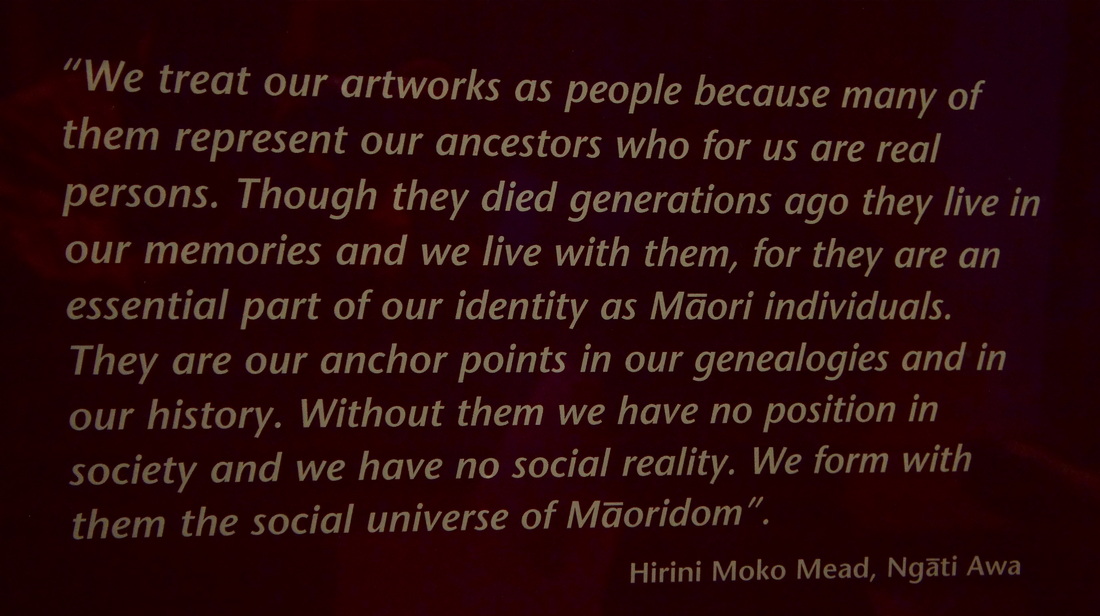
Last things first. Obviously, the Chechen brothers were evil assholes who brought a lot of pain and suffering into the world. I'll speak about justice a little later, but it's clear they deserve theirs. What is less clear during emotional times like this is that acts like these do serve to remind us of the importance of a cosmopolitan viewpoint in our modern world without borders. According to Appiah, he's defining a modern cosmopolitanism to include the "recognition that human beings are different and that we can learn from each other's differences." He's not just making the case for relativism though. He says, "If relativism about ethics and morality were true, then at the end of many discussions we would have to end up saying, 'From where I stand, I am right. From where you stand, you are right.' And there would be nothing further to say. Relativism of that sort isn't a way to encourage conversation; it's just a reason to fall silent." And while Appiah doesn't offer an answer for universal truth, he makes a very important distinction about this idea. He says, "What distinguishes the neofundamentalists, violent or not, is that they exemplify the possibility of a kind of universal ethics that inverts the picture of cosmopolitanism. Universalism without toleration, it’s clear, turns easily to murder. This is one lesson we can learn from the sad history of Christian religious warfare in Europe. On the other hand, there are limits to cosmopolitan tolerance. Toleration requires a concept of the intolerable. We cosmopolitans believe in universal truth, too, though we are less certain that we have it all already. It is not skepticism about the very idea of truth that guides us; it is realism about how hard the truth is to find out."
"Universalism without toleration turns easily to murder."
-- Kwame Appiah, Cosmopolitanism
This is critically important to understand. While I am trying to lay down a school of thought that seeks universal truth based on the facts of our evolution within this universe, I do recognize that we don't yet have all the answers, nor, due to the limits on our knowledge that come as a result of the size and nature of our universe, are we ever likely to have all the answers. We have a guiding principle of what is good - good is that which leads to the long-term survival of life - but we must tolerate others' ways of serving that good until we become reasonably certain that they are not.
And so, we continue to search for ways to be good and as Appiah states, "A cosmoplitan openness to the world is perfectly consistent with picking and choosing among the options you find in your search." This brings me back to my first point. Here is something I found from the Maori culture that I particularly liked. It was an inscription at the entry to a Maori section of a museum in Auckland.
Other Individuals
Family
You are born into your family - you did not choose it. Families brought you into this world and should provide for your needs. Biological bonding increases the odds that this will happen, but parents that have not mastered their own needs will be less able to help you meet yours. If you are lucky enough to have a good family, cherish it and honor it by earning your place in it. If your family is kind but lacking, do your part to improve it. If your family is destructive, do not hesitate to minimize its influence on you.
Friends
Friends help us meet our social needs. They are the fabric that weaves the social net that supports you and your life. Friends play different vital roles in your life. According to studies by positive psychologists, they can be: builders, champions, collaborators, companions, connectors, energizers, mind openers, and navigators. Find people to fill these roles for you. Don’t expect all things from all people. Find how you can fill these roles for others.
People with similar levels of personality development are much more likely to become and remain friends. If there are people in your life who are far behind you in development and they do not fill any of the vital roles in your life, they are not your friends. They are likely to be enemies you have mistakenly let in the gate. Expel them with no remorse.
Spouses
Finding a romantic partner is natural and useful. A good one will provide the focus of your secure attachment needs in adulthood, thus providing much safety and comfort for exploration. Primal sexual urges lead some to believe that monogamy is not natural, but that is short-term yielding to gratification at the expense of long-term happiness and satisfaction. A spouse can be your companion through life. Find one that can grow and develop with you over the long term. Find one whose life goals are compatible with yours. Find love - love being the admiration of a person’s life.
It takes time to know someone, to hear their stories, know their beliefs, see them in action, see them respond to stress. It takes time to find love. Do not mistake the short-term feelings of desire, lust, and curiosity, strong as they may be, for the long-term feeling of love. Do not believe in the myth of love at first sight - that denigrates the actual meaning of the word. Do not believe that there is only one soul mate out there for you. There are no souls, and there are many people worthy of love if you are worthy of it yourself.
Children
Children require an incredible amount of personal energy and resources to raise properly. In this day and age, increasing competition in a world of 7 billion people means that it is harder for each one to find a sustainable, happy, and productive niche for their lives. Decreasing levels of cooperation from your family and fellow citizens in raising children puts more and more of the burden on the mother’s and father’s shoulders. You should think seriously about your ability to provide for a child under these circumstances. Raising children should be one of your life goals and taken seriously if that is what you decide to do. Bringing children into the world that suffer through a stressful, anxious, ill-nourished childhood and become short-term-focused, overly competitive adults actually places the survival of the species at risk. Take the time and energy to help yourself if you are not yet capable of raising a child who will be healthy in body and mind.
The world does not need more and more children anymore. The vast numbers of people in the world mean that sexual selection for beneficial traits is no longer meaningful. Even the most prolific of men might sire only 100 children - an insignificant amount in the grand scheme of the development of the species. On the other hand, a contribution to humanity’s culture can have a much greater impact on the future. Gene-culture coevolution, or cumulative cultural evolution, allows humans to culturally evolve highly distinct adaptations to the local pressures and environments much quicker than with genetic evolution alone. Anyone can have a child. Society still contains an overwhelming bias of encouragement to have children. They may be wonderful. I am merely stating reminders of why everyone need not yield to the biological pressure to do so. Developing our civilization and culture is predicated on overcoming short-term biological urges. In fact, if the human population does truly bump up against earth’s resource limits, the morality of having more children would come more and more into question.
We can get great joy out of raising children. The personal bonds are deep, satisfying, and vitalizing. A parent can take great pride in protecting, nurturing, and adding a productive member of society who is able to live a happy life. Society should do what it can to make this job easier and not harder. Otherwise, the society will spin in place or even degrade as under-raised children simply and continually replace over-harried parents in the wheel of life.
Acquaintances
The evolutionarily developed brains we have and the fixed amount of time in a day combine to set a limit for us of approximately 150 friends who we can really know. The rest of the people you come across are likely to remain acquaintances with only a fleeting awareness of their lives. In today’s dense society, you are easily able to meet thousands of people. Choose wisely which category these people fall into.
A wise man learns more from a fool than a fool from a wise man. Learn what you can from the fools you are acquainted with. If they have no possibility of rising to the level of friend, treat them with respect; there is no reason to create an enemy. If they are unlikely to be seen again, treat them with respect; you will have to look in the mirror and reputations spread far and wide and affect more people than just yourself.
Strangers
Human nature is universal. There has not been enough separation of the species on an evolutionary timescale to produce anything else. Trust that whomever you meet, wherever you go, they will share the same needs, desires, and personality categories as you. The culture they have lived in may change the probability of a stranger becoming a friend, but it does not change the possibility. Be open to the possibility of friendship. Assume the best in strangers. They will be more likely to live up to your expectations.
Be prepared to follow the tit for tat strategy. Lead with cooperation, but be prepared to punish transgressions. If you are only a dove, you will lose to any hawk. If you can be both dove and hawk, you can enjoy the company of the doves while warding off the hostile hawks.
Family, friends, spouse, acquaintances, strangers...tell me what you think. An evolutionary philosophy searching for the survival of the fittest ideas needs to hear the ideas of others. I promise I tolerate them, as I hope you will tolerate mine.
---------------------------------------------------
If you enjoy these essays, spread the word. Forward the post to others who might like these weekly ruminations. Encourage them to sign up for one small email a week. It would be a big help.


